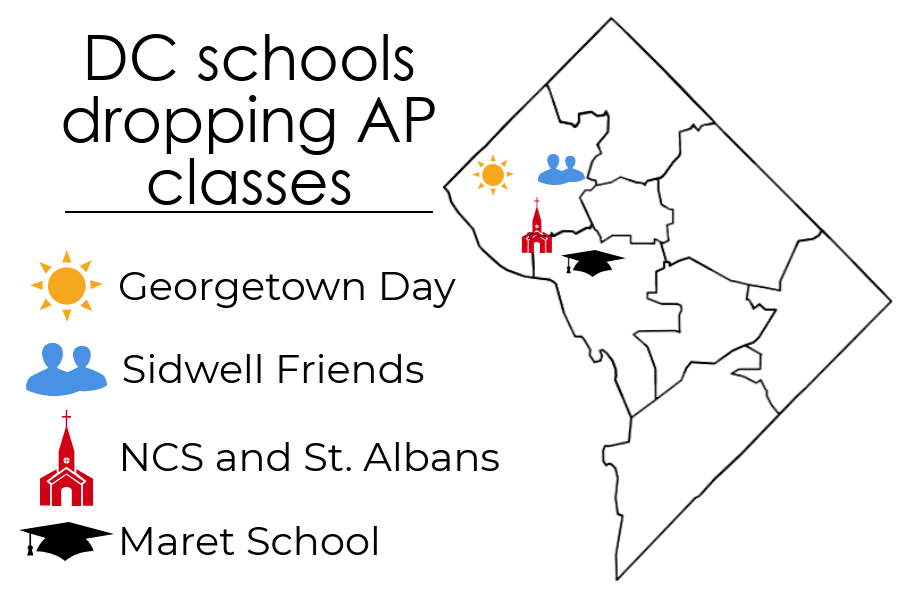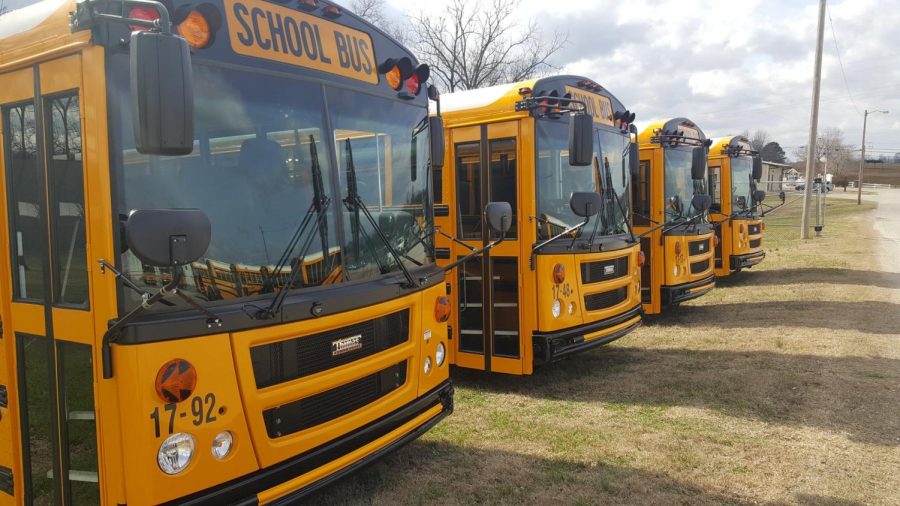Local private schools decide to eliminate AP classes
October 1, 2018
Eight local private schools announced in June that they will phase out Advanced Placement courses, completely eliminating them by 2022. The schools—Landon, Holton-Arms, Maret, Sidwell Friends, Georgetown Day School, National Cathedral School, St. Albans and the Potomac School—made a joint statement in the Washington Post, saying they have realized the “diminished utility” of the courses.
The schools’ administrators cite teaching to the test, rather than preparing students for life after high school, as a main reason for eliminating APs.
“We constantly review our programs to ensure that we are doing the best job possible to prepare our students for college and life beyond,” director of communications at Holton Arms School Ellen Hatherill said. “As a part of that process, we are shifting away from an AP curriculum and moving towards developing our own advanced curriculum.”
Holton-Arms is introducing classes that allow students to take advantage of their proximity to the nation’s capital. In a class called “Advanced Topics in Art History: Global Art History in Washington, D.C.,” students will have the opportunity to visit D.C. museum collections in person. Instead of testing, the class emphasizes research, writing and presentations. In lieu of its elimination of APs and their exam-oriented structure, Holton will also add more projects to the curriculum instead.
“We believe the opportunities for more choice and emphasizing depth over breadth will prove more effective in tapping into both students’ and teachers’ passions,” Hatherill said.
Although these schools have made the decision to shift away from AP courses, these courses remain immensely popular throughout the U.S. A report by the College Board—the organization that created and runs the AP program—found that 2.7 million students took at least one AP exam in 2017.
Because the courses are designed to cover advanced topics and give students the opportunity to earn college credit, many teachers support their inclusion.
“I feel they adequately prepare students for equivalent classes in college, absolutely,” Whitman AP Economics teacher Stephen Hays said. “AP Micro and Macro are equivalent to Macro and Micro introductory colleges that you would take in college.”
But even though APs supposedly offer college credit—and with that the opportunity to save money—many colleges don’t accept APs as an avenue for early graduation, instead allowing students to place out of introductory level courses.
“Most top tier colleges say great, good job, now you can take the harder classes in the same subject,” guidance counselor William Kapner said. “If kids are looking to save a lot of money in college, doing the dual enrollment and getting enrolled at Montgomery College while they’re high school students is the best route for that.”
In the near future, it appears AP classes at Whitman will stay.
“I don’t foresee Whitman or for that matter MCPS dropping APs. Having AP in the schools is not just a Whitman decision, its a Montgomery County decision,” principal Robert Dodd said. “I understand their perspective, I get where they’re coming from, but I also think AP courses at Whitman do a lot of great things for the students.”








